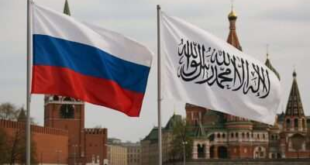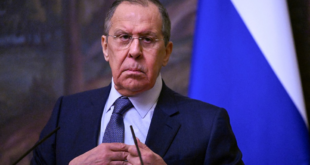By Dario Cristiani, The Power and Interest News Report (PINR)
The United States recently accused Iran of increasing its influence in Afghanistan. General Peter Pace, the chairman of the U.S. Joint Chiefs of Staff, said that “in the last month, we have intercepted in Afghanistan weapons that were made in Iran.” Shortly thereafter, Richard Boucher, the U.S. assistant secretary of state for South and Central Asian affairs, said that “we have been seeing a series of indicators that Iran is maybe getting more involved in an unhealthy way in Afghanistan,” implying that the United States will keep an even closer eye on this involvement.
Iran strongly denies such accusations. Mohammad Ali Hosseini, the Foreign Ministry spokesman, said that Washington’s conjectures were totally baseless. Apart from these specific accusations, it appears that Tehran has been playing a stronger role in Afghanistan since 2001, and Tehran has a specific interest in increasing this involvement.
Iranian Influence in Afghanistan
Afghanistan and its ethnic and religious mosaic is a “paradigmatic case” of the importance that trans-state identities play in the geopolitical configuration of the Greater Middle East. Iran’s attempt to gain leverage over Afghanistan is mainly based on these factors, although Tehran has attempted to engage different and distant actors on occasions in which it needs to safeguard tactical and short-term interests. In Afghanistan, there are many groups that, for their linguistic, cultural, ethnic and religious patrimony, might be targets of Iranian moves.
First of all, Iran has been the traditional backer of Afghanistan’s Shi’a, such as the Hazaras, the Qizilbashs and the Farsiwans. The largest Shi’a faction in Afghanistan, about ten percent of the overall population, is the Hazara group, mainly based in the central regions of Bamyan and Ghor, the so-called Hazarajat. This area represents a sort of “Shi’a enclave” encircled by the great urban centers of Sunni power.
In the early 1990s, however, Tehran widened its range of action in Afghanistan. Iran backed other groups that were linked by history, language and culture to Iran, such as the Tajik faction and its most important leaders, Ahmed Shah Massoud and Ismail Khan. Moreover, Tehran searched for a tactical alliance with other elements in the Afghan theater, and such a posture brought Tehran to support the Uzbek warlord Abdul-Rashid Dostum and the former president, Burhanuddin Rabbani.
This was the same logic that influenced Tehran during the Taliban period. Anyone standing against the Taliban was a potential asset for Iran in its struggle with the hostile neighbor. The Taliban were the representatives of traditional Afghan Sunnism, strongly hostile to the Shi’a. Indeed, prior to the new constitution of 2004, the Hanbali school — the most intransigent of the four juridical schools of the Sunni Islam — was recognized as the sole legitimate order.
The fall of the Taliban regime opened an important window of opportunity for Tehran in order to regain leverage and influence over its neighbor. However, a kind of “structural contradictoriness” affects Iran’s strategy in Afghanistan. Such a contradiction stems from the complexity of Iranian aims in the Afghan theater. The main contradiction is linked to the necessity of having a stable Afghanistan for its internal security, social and economic concerns and, in the meantime, trying to weaken the U.S. position in the area.
Iran’s Strategic Imperatives and Diversified Goals
Iran and Afghanistan, as well as Pakistan, are bound in a sort of “strategic geography” in which their security, economic and social well-beings are deeply interdependent and their geopolitical fates are strongly linked. Therefore, Tehran has an interest in a strong and stable Afghanistan. This is for several reasons. An unstable Afghanistan could threaten the stability of Iran, above all in those provinces bordering the Afghan western regions. Such instability could spill over the boundaries and affect Iranian security. This instability could also lead to future waves of refugees in Iran, and Tehran perceives it as a key threat for its social stability and economic tenure. Moreover, Tehran wants a stable Afghanistan in order to combat drug trafficking.
Tehran hopes for an authoritative government in Kabul because it could be impermeable and more autonomous from external influences. Such a development is an important concern for Tehran. Afghanistan is a fundamental wedge for the geopolitical struggle in the Greater Middle East. Tehran, for example, perceives as a danger the renewed influence of Pakistan, and it is afraid of Saudi activism based on the export of radical Sunni Salafi/Wahhabi ideology, which has been a fundamental tool of influence for Riyadh.
Tehran wants to use the current strained relations between Kabul and Islamabad in order to gain leverage over Afghanistan. Such a situation brings Kabul in search of an alternative course to the southern route of its exports. Iran wants to take advantage of this situation by becoming a significant open door to the world for Afghanistan and a privileged transit country for its products and exports. Indeed, it wants to use these Afghan strategic needs to make its geopolitical role essential for Kabul.
Nevertheless, Tehran could also have an interest in an unstable Afghanistan. Such an element appears clear if the analysis of Iran’s interests shifts from a strictly internal and regional scale to a global one. An unstable Afghanistan could represent a formidable tool of pressure against the United States.
Iran is increasingly concerned about the presence of U.S. troops near its eastern borders in Afghanistan. This strategic logic also affects Iran’s stance in Iraq. Tehran is concerned about a scenario in which the United States would keep its troops in Afghanistan and Iraq for a long time, and it is afraid of being sandwiched between two pro-U.S. governments. For example, in 2005, the United States and Afghanistan signed a “Memorandum of Understanding” with the aim of creating a “strategic partnership” that could lead to permanent U.S. military bases close to Iran’s borders. This is an element of deep concern for Tehran.
Given Iran’s traditional sensitivity to its national sovereignty, which amplifies its threat perception and strongly influences its foreign policy decision making, and its self-representation as a great power with the aim of extending its influence over the entire Greater Middle East region and gaining a vanguard position in the geography of Islamic power, Tehran will not accept a similar development and its stance will be aimed at avoiding a lasting presence of the United States in these theaters of conflict.
Iran’s Tools for Spreading Influence
Iran wants to extend its influence over Afghanistan with a plurality of instruments, including: economic aid and support for reconstruction; the reinforcement of the levels of trade between the two countries and a growth of Iranian investments, aimed to consolidate economic interdependence; the building of road and rail links in the way of “steering” the economic and geopolitical projection of Afghanistan toward the west; Iran’s “soft power” levers, embodied by the scholarships given by Tehran to young Afghans in order to consolidate cultural influence over the country; the strengthening of Tehran’s ties with religious and ethnic groups sensitive to Iranian influence; and typical intelligence actions, such as the recruitment of agents, the activity of information-gathering and the use of propaganda.
This is the conceptual framework in which U.S. accusations against Iran must be read and analyzed. It is likely that the vagueness of U.S. claims over Iranian involvement is a part of Washington’s strategy to place pressure on Iran and a way to weaken its ties with Kabul through the accusation that Tehran is backing President Hamid Karzai’s enemies. Although an Iran-Taliban dialogue cannot be ruled out, this strategy would be troublesome for Tehran because the Taliban is a “structural enemy” of the Shi’a and of Persian power. Even if the Taliban were pushed by short-term interests to search for Iran’s support, once these interests were satisfied or changed, the Taliban would be an enemy for Tehran and, when foreign forces leave Afghanistan, a return to power of the Taliban could be a strategic failure for the country.
Iran wants to consolidate its influence in Afghanistan in order to gain enough leverage that, once N.A.T.O. forces leave Afghanistan, it can affect political outcomes there. Therefore, such an aim compels Tehran to have a flexible and pragmatic approach on the Afghan issue. Even though Iran is an important ally of President Karzai, if he loses power and authority, Tehran will support other actors in order to maintain its leverage in Afghanistan.
Conclusion
Since 2001, Tehran has been playing an even stronger role in Afghanistan, which is considered an important wedge on its geopolitical map. The moves of Iran respond to different kinds of interests. On the one hand, Tehran needs a stable Afghanistan in order to guarantee its internal stability and its economic and social interests. On the other hand, Tehran could have an interest in stirring up instability and disorder within Afghanistan with the aim of affecting U.S. interests in the Greater Middle East. The last aim of Tehran, however, is to consolidate influence in Afghanistan, thus, in the case of a persistent presence of U.S. troops close to its frontiers, it could use this influence to distress the United States or, in the case of a departure of foreign forces from Afghanistan, it could use its proxies to play a role in decisions on the fate of the country.
Iran’s involvement in Afghanistan could be a hedge if the United States decides to attack its nuclear facilities, or it could help Tehran prevent a return to power of the Taliban. In Iran’s view, the process that is bringing Tehran to play an even stronger role in Afghanistan must be irreversible and must prevent Iran from being pushed aside on future decisions in Kabul.
The Power and Interest News Report (PINR) is an independent organization that utilizes open source intelligence to provide conflict analysis services in the context of international relations. PINR approaches a subject based upon the powers and interests involved, leaving the moral judgments to the reader.
 Eurasia Press & News
Eurasia Press & News



